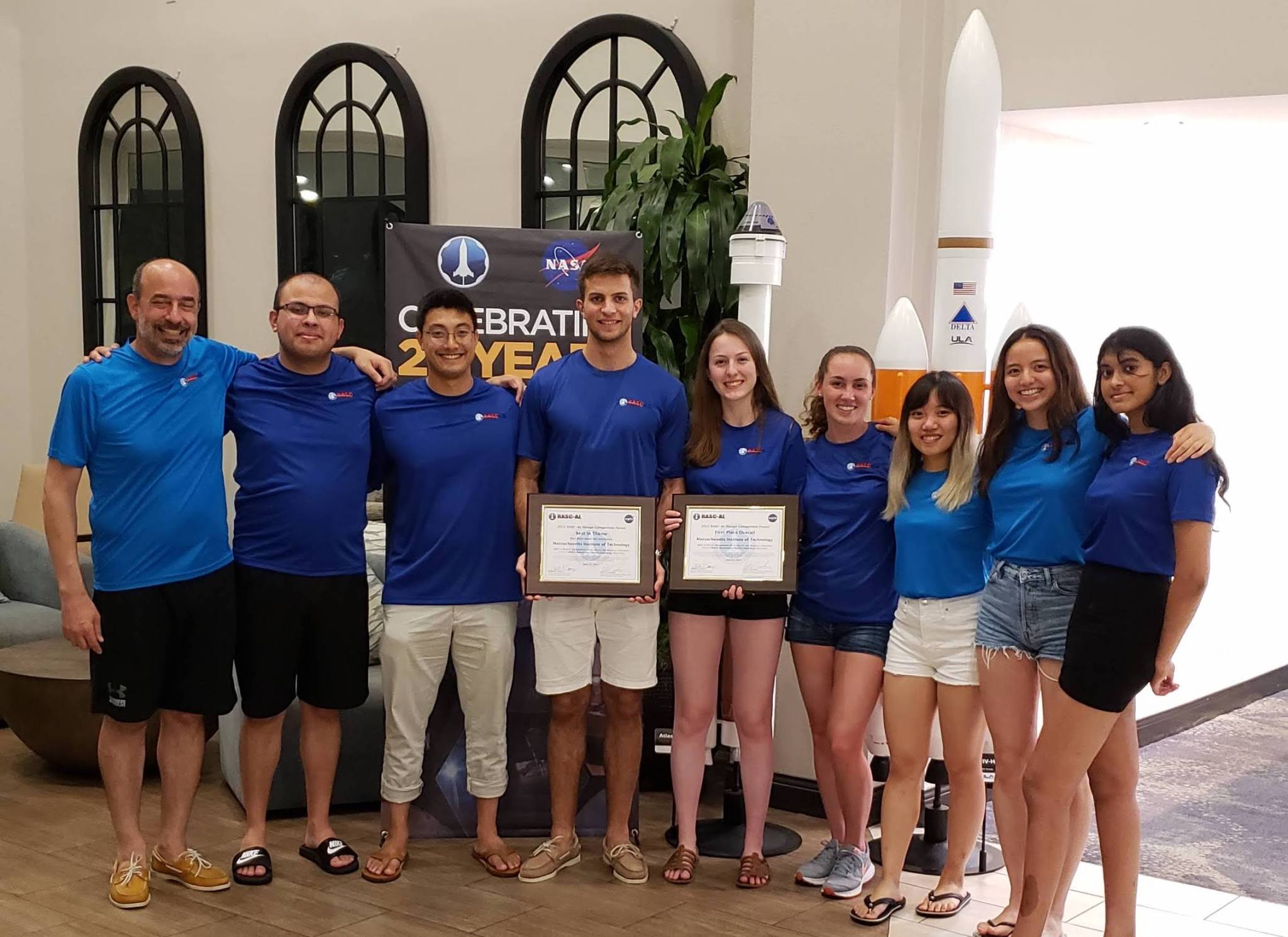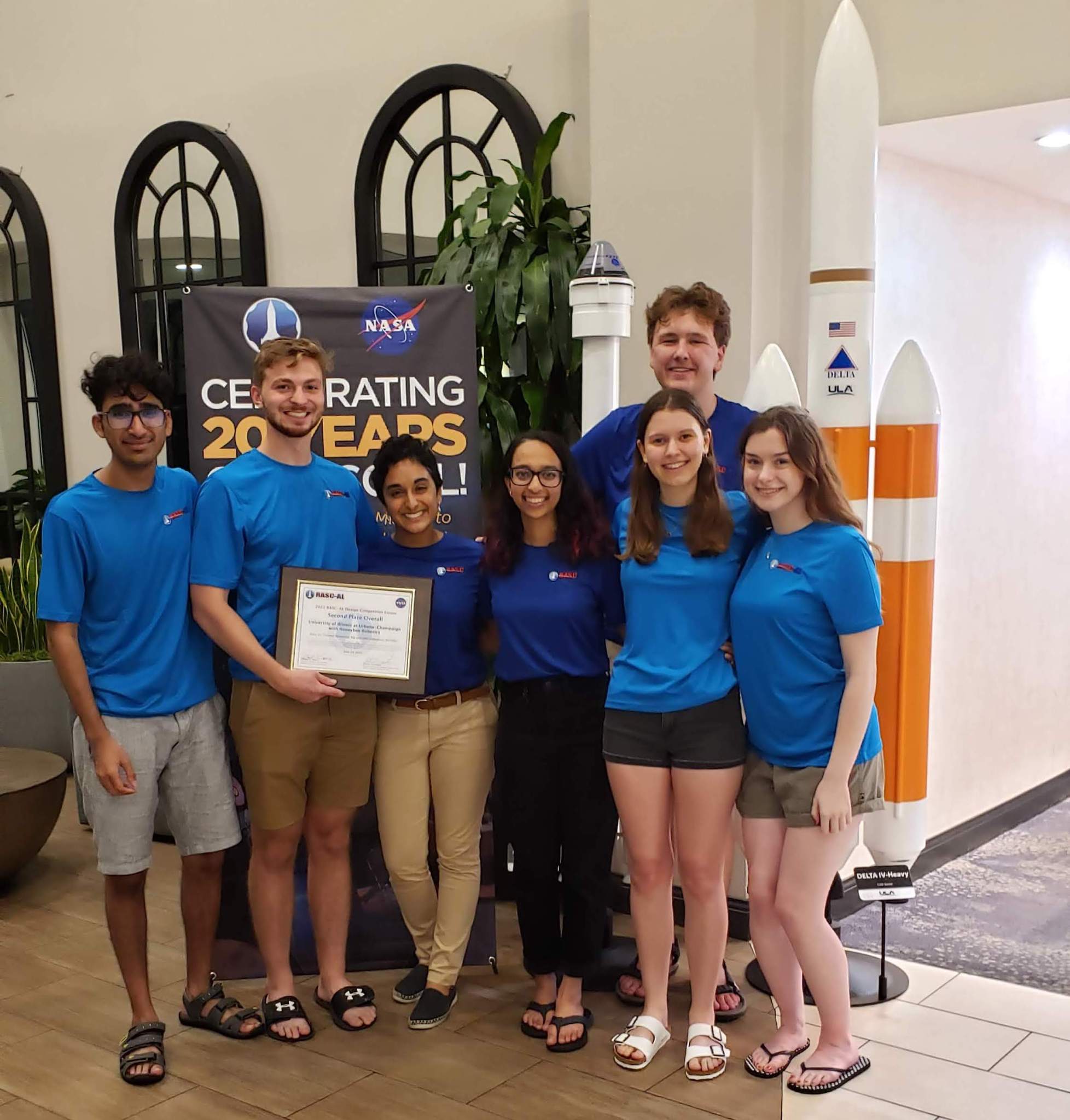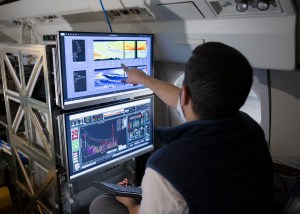University teams from across the U.S. presented their space mission designs at NASA’s annual Revolutionary Aerospace Systems Concepts – Academic Linkage (RASC-AL) competition, held June 20-23 in Cocoa Beach, Florida.
Taking home top prize, Massachusetts Institute of Technology presented their concept for a Bipropellant All-in-one In-situ Resource Utilization Truck & Mobile Autonomous Reactor Generating Electricity. University of Illinois at Urbana-Champaign with Honeybee Robotics took second place overall for their concept, a Mars Ice Thermal Harvesting Rig and In Situ Resource Utilization Laboratory. These teams receive a travel stipend and presentation slot to showcase their concepts to aerospace industry professionals at the 2022 ASCEND Conference in Las Vegas, Nevada, October 24-26.
Celebrating its 20th anniversary, RASC-AL is one of NASA’s longest running higher education competitions and encourages students to move the needle on concept development and trade space analysis and bring fresh ideas compatible with NASA’s space exploration efforts. To celebrate two decades, teams were invited to develop prototypes of all or part of their concept to demonstrate its key functions. Participating teams earned additional bonus points based on prototype quality and technical demonstration.
Finalist teams responded to one of four RASC-AL themes: a portable utility pallet to deliver power and communications during lunar eclipse periods; a universal sample containment system to preserve extraterrestrial materials for study on Earth; a Mars water-based in-situ resource utilization architecture to produce materials that would otherwise need to be carried to the Martian surface; and a suitport logistics carrier to deliver materials to support 30-day crewed surface expeditions.
“It’s hard to believe we’ve been operating this competition for 20 years, and it’s equally amazing to see not only how it has grown, but how influential these teams’ work has been in NASA’s research and development,” said Patrick Troutman, human exploration strategic assessments lead at NASA’s Langley Research Center in Hampton, Virginia. “We develop themes that are highly relevant to the work we’re doing at the agency, and it is invigorating to incubate these fresh, new ideas in a competitive but relaxed atmosphere. The level of excellence at which these teams operate indicates that the future of aerospace is in wonderful hands.”
Additional 2022 forum awards include:
Best in Theme
- Portable Utility Pallet – West Virginia University’s Lunar Exploration and Artemis Development Portable Utility Pallet
- Universal Sample Containment System – University of Michigan’s Lunar Vacuum-Enabled Sample Solution
- Mars Water-based ISRU Architecture – Massachusetts Institute of Technology’s Bipropellant All-in-one In-situ Resource Utilization Truck & Mobile Autonomous Reactor Generating Electricity
- Suitport Logistics Carrier – University of Maryland’s Design of a Suitport Logistics Carrier
Miscellaneous Awards
- Best Prototype Demonstration – Embry-Riddle Aeronautical University with Politecnico di Milano’s Self-Acquisition of Liquid propellant Versatile Arsenal of Resources Endeavour
- Most Innovative Technology – University of Cincinnati’s Membrane Electrolysis Assembly in their Resource Extraction and Propellant Architecture for Mars
RASC-AL is open to undergraduate and graduate students studying disciplines related to human space exploration, including aerospace, bio-medical, electrical, and mechanical engineering, and life, physical, and computer sciences. RASC-AL projects allow students to incorporate their coursework into space exploration objectives in a team environment and helps bridge strategic knowledge gaps associated with NASA’s vision.
RASC-AL is sponsored by NASA’s Moon to Mars Architecture Development Office within the Exploration Systems Development Mission Directorate (ESDMD) at NASA Headquarters and the Space Mission Analysis Branch at NASA Langley. It is administered by the National Institute of Aerospace.
For more information about the RASC-AL competition, themes and 2022 finalists, visit:






























